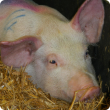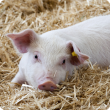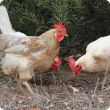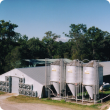Biosecurity & quarantine
The Department of Agriculture and Food, Western Australia (DAFWA) works with primary industries to safeguard our agricultural resources from biological threats and to maintain our export opportunities.
The State’s reputation is underpinned by a comprehensive biosecurity and quarantine system, developed and operated by DAFWA.
DAFWA is involved with:
- creation of surveillance and diagnostic programs
- animal and plant risk assessments
- importing and exporting requirements
- creating mechanisms to respond to incursions
- livestock movement and identification
- development and maintenance of biosecurity and quarantine legislation.
To find out more about what we do to protect agricultural production and export opportunities within the State please search our website.
Filter by search
Filter by topic
- Livestock health & diseases (22) Apply Livestock health & diseases filter
- (-) Remove Emergency animal disease preparedness filter Emergency animal disease preparedness
- Livestock & animals (22) Apply Livestock & animals filter
- Pests, weeds & diseases (22) Apply Pests, weeds & diseases filter
- (-) Remove Livestock species filter Livestock species
- Diseases (22) Apply Diseases filter
- Livestock disease surveillance (21) Apply Livestock disease surveillance filter
- Biosecurity (21) Apply Biosecurity filter
- Livestock biosecurity (19) Apply Livestock biosecurity filter
- Pigs (8) Apply Pigs filter
- Livestock management (4) Apply Livestock management filter
- Beef cattle (4) Apply Beef cattle filter
- Horses (4) Apply Horses filter
- Poultry & birds (3) Apply Poultry & birds filter
- Sheep (3) Apply Sheep filter
- Livestock movement & identification (3) Apply Livestock movement & identification filter
- Goats (3) Apply Goats filter
- Dairy cattle (3) Apply Dairy cattle filter
- Emergency response (3) Apply Emergency response filter
- Wildlife biosecurity (2) Apply Wildlife biosecurity filter
- Camelids (1) Apply Camelids filter






